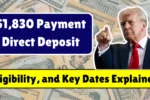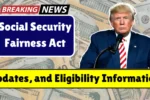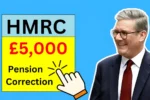In 2024, the Canadian government introduced a $250 rebate to offer financial relief to working Canadians. This initiative, known as the Working Canadians Rebate (WCR), is set to be distributed in spring 2025. It is aimed at individuals who worked in 2024 and earned up to $150,000, providing a one-time payment to ease the financial pressure from daily expenses. However, the legislation to formally implement the rebate has not yet been passed, causing delays in its rollout.
While Canadians await the official rollout of the rebate, scammers are taking advantage of the uncertainty by launching fraudulent schemes. These scams involve emails, text messages, and phone calls that falsely claim to offer early access to the rebate. The Canada Revenue Agency (CRA) has issued a warning to the public, urging them to be cautious of such deceptive attempts.
Understanding the Working Canadians Rebate
Announced on November 21, 2024, the Working Canadians Rebate aims to assist Canadians during challenging economic conditions. Those who worked in 2024 and earned up to $150,000 could be eligible for the $250 payment. The initiative is part of a larger economic relief package that also includes a temporary GST holiday. While the GST relief measure has passed in the House of Commons, the WCR legislation is still pending due to disagreements in Parliament, especially from NDP Leader Jagmeet Singh, who voiced concerns over the exclusion of some vulnerable groups.
As of now, no payments have been issued, and Canadians must wait for the passing of the necessary legislation before receiving any funds.
Scammers Taking Advantage of the Delay
With the delay in the WCR rollout, scammers have seized the opportunity to exploit public confusion. Fraudulent emails, text messages, and calls are circulating, claiming to offer early access to the rebate. These scammers often request personal or financial details or demand payments in exchange for the rebate. They may use high-pressure tactics, such as threats of consequences or promises of faster processing, to trick victims into disclosing sensitive information.
CRA’s Official Warning
The Canada Revenue Agency (CRA) has clarified that no legitimate WCR payments are being processed at this time. They have emphasized that the rebate will only be distributed after the required legislation is enacted. The CRA has also issued clear guidelines to help Canadians avoid falling victim to scams:
- No payments yet: As the rebate is not yet available, be wary of any communication claiming to offer early access.
- No unsolicited messages: The CRA does not send unsolicited emails, texts, or calls asking individuals to fill out forms or click on links to claim the rebate.
- No fees required: The CRA will never ask for payment or personal details via email or text to process the rebate.
Identifying Common Scam Tactics
The CRA has outlined several key signs to help Canadians identify fraudulent communications:
- Urgent Payment Requests: Scammers may claim that an immediate payment is required to receive the rebate or avoid negative consequences. The CRA never operates in this manner.
- Unconventional Payment Methods: Be cautious if anyone asks for payment via methods such as gift cards, cryptocurrencies, or prepaid cards. These are red flags, as the CRA does not use these channels.
- Aggressive or Threatening Language: Fraudulent messages might threaten arrest or deportation if payment is not made. The CRA does not use such tactics.
- In-Person Meetings: If someone asks to meet in person to collect payment, it’s likely a scam, as the CRA does not require such meetings.
What to Do if You Suspect a Scam
If you receive a message or phone call claiming to offer the WCR or requesting personal information, here’s what you should do:
- Do not respond: Avoid clicking on any links or downloading attachments from unsolicited messages. Never share personal information or make payments.
- Verify the message: If you’re unsure of a message’s legitimacy, visit the official CRA website or contact the CRA directly using verified contact details.
- Report the scam: If you suspect you’ve encountered a scam, report it to the CRA’s Anti-Fraud Centre. Reporting helps protect others from falling victim to fraud.
Distribution of the Rebate by CRA
Once the legislation for the $250 rebate is passed, the CRA will begin automatically distributing the funds to eligible Canadians. Payments will be made via direct deposit or cheque, depending on the individual’s preferences. There will be no need to apply or complete any additional forms to receive the rebate.
The CRA has stated that it will never ask for sensitive personal details, such as Social Insurance Numbers (SIN) or banking information, through emails or text messages. Canadians should be cautious and ensure they are interacting only with official CRA channels.
Conclusion
While the Working Canadians Rebate has the potential to provide much-needed relief to Canadians, the payment is still some time away. In the meantime, fraudsters are using the delay to exploit the situation and scam individuals. The CRA has issued clear warnings and guidance to help Canadians recognize and avoid scams. It is essential to remember that legitimate payments will only be issued once the necessary legislation is passed, and no fees or personal information will be required for the rebate.
By staying informed and cautious, Canadians can protect themselves from fraud and be ready to receive their rebate when the time comes.





